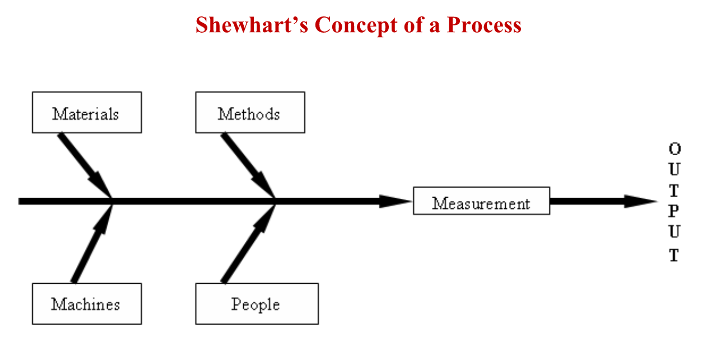Management's Responsibility for Quality
A Reply to Members of the W. Edwards Deming Official Group
I belong to several groups on the Linked In web site and I find many of their on-line discussions to be both interesting and informative. Not long ago, a member of the W. Edwards Deming Official Group wrote, “The time is right to post that Dr. Deming's greatest teaching was that management is responsible for outcome. I see too many companies poorly managed, trickling down to employees.”
Other group members replied with a number of reactions and responses; among them:
- We must develop a commitment from the “Influential Sphere.” The Communications model of Information, Understanding, Commitment and then Action needs to be instilled on the Influential Sphere.
- The younger generation [of managers] sees no need for long-term results. It is a function of getting through their years and then moving on with their ticket punched to the next position.
- I guess the question is the third of Dr. Deming’s three questions that we heard all the time. 1.) To what end? 2.) For what purpose? and the kicker, 3.) By what method?
- To what end? What is the outcome to be delivered? How will you know you’ve met that purpose? What method will you use to achieve outcomes and engage in the essential purpose? These elements help us manage the gap that all public sector organizations have between “mission as published” and “mission as practiced.”
- Alas, the age of critical thinking isn’t yet here.
I was surprised that none of the group members brought up Deming’s “system of profound knowledge” in response to the original post. Deming was fond of saying that there is no substitute for knowledge. He added, “Once the individual understands the system of profound knowledge, he will apply its principles in every kind of relationship with other people. He will have a basis for judgment of his own decisions and for the transformation of the organization that he belongs to.”1
Managers must first know that they are primarily responsible for quality and why. Otherwise, they won’t think to even ask the first question. Beyond that, even if they were prompted to ask the questions recommended by the above group members, they “will have no basis for judgment” of the answers! The first component of the system of profound knowledge is “appreciation for a system.” It requires some knowledge of the science of physics, understanding systems and the interaction of components therein.
Deming defined a system as a network of interdependent components that work together to accomplish some aim. In his short paper about his system of profound knowledge he wrote, “The aim of the system must be stated by management. Without an aim, there is no system.” He cited a good orchestra as an example of an optimal system. “The players are not there to play solos as prima donnas, to catch the ear of the listener. They are there to support each other. They need not be the best players in the country.”2
Why is management responsible?
Deming pointed to Walter Shewhart’s concept of a process (see below) as an elegant illustration of why management is responsible for the vast majority of quality problems. Notice on Shewhart’s model how an elaborate combination of materials, methods, technology, measurement and people produce outcomes – and those outcomes are not controlled by the employees alone.
To return to the original post on the Linked In web site, “Why is management responsible for the outcome?" Because only management has control over all of the components of the process. People who work in the process (Deming called them “local workforce personnel”) do not control capital spending. They cannot go out and buy new and better capital equipment and tooling. They’re a part of the process.
By the same token, local workforce personnel do not control purchasing policy. They cannot go out and buy better materials or components from new and better suppliers. They’re a part of the process. Thus, management and management alone is responsible for all common cause variation in process outputs. That responsibility cannot be delegated, cannot be dodged – no matter how many Six Sigma green belts or black belts that you deploy.
As soon as managers gain profound knowledge, they will understand and accept their responsibilities. Maybe then they’ll start to ask the right questions and organizations will finally adopt long-term constancy of purpose to be in business, capturing markets, paying dividends, and providing jobs 10, 20 and 30 years from now.
Notes
1 W. E. Deming, The New Economics for Industry, Government, Education, Second Edition, MIT Center for Advanced Educational Services (1994), pp. 92-93.
2 W. E. Deming, “A System of Profound Knowledge,” published in J. F. Leonard, The New Philosophy for K-12 Education: A Deming Framework for Transforming America’s Schools, ASQ Quality Press (1996), p. 311.
© 2016 James F. Leonard. All rights reserved.

